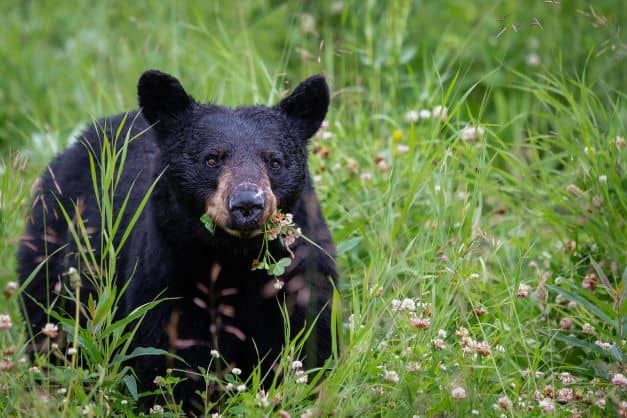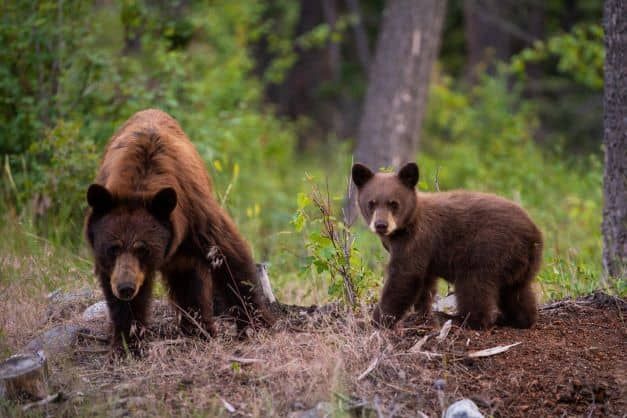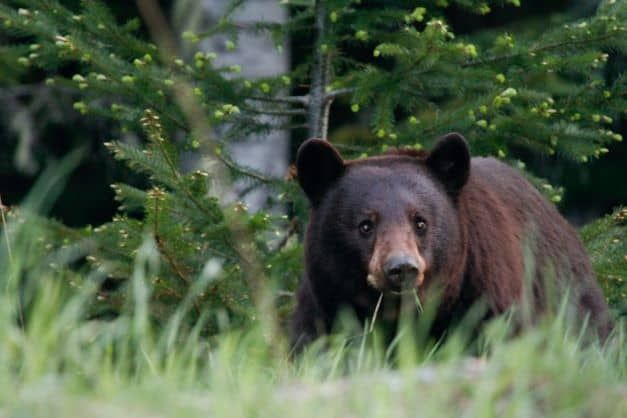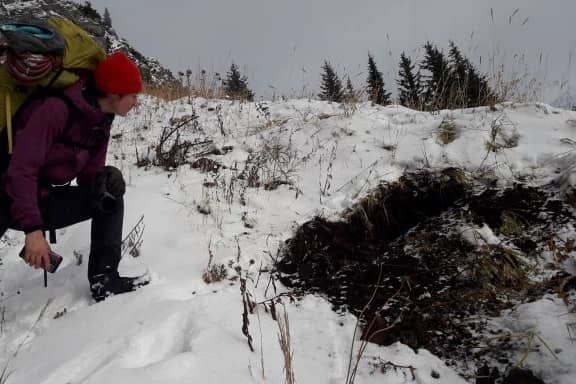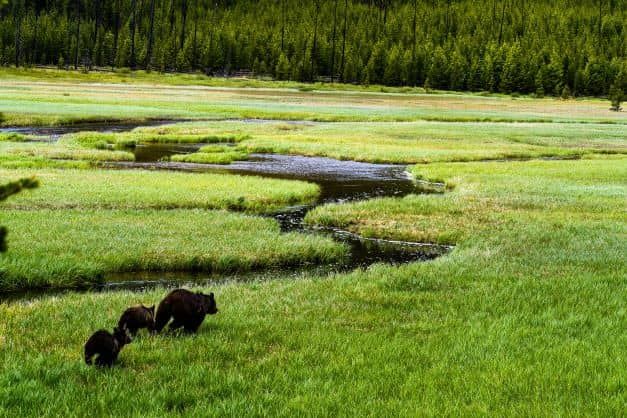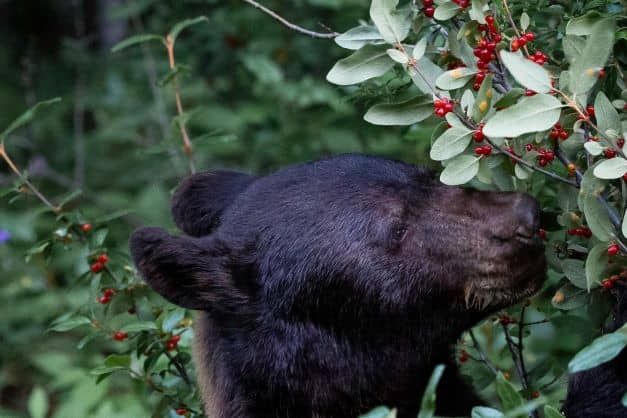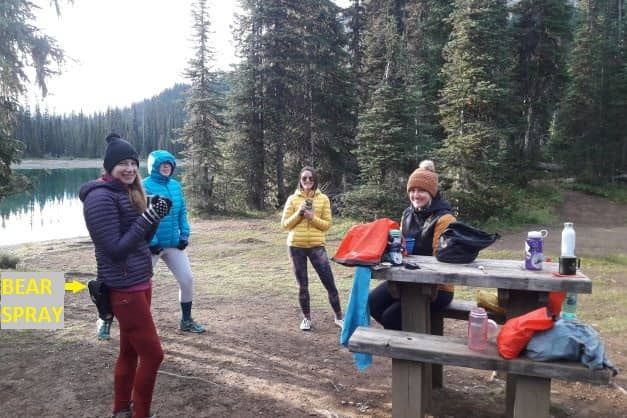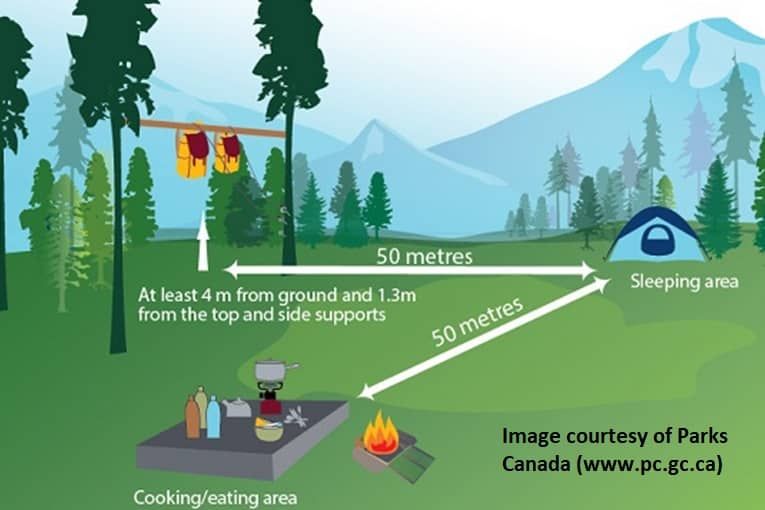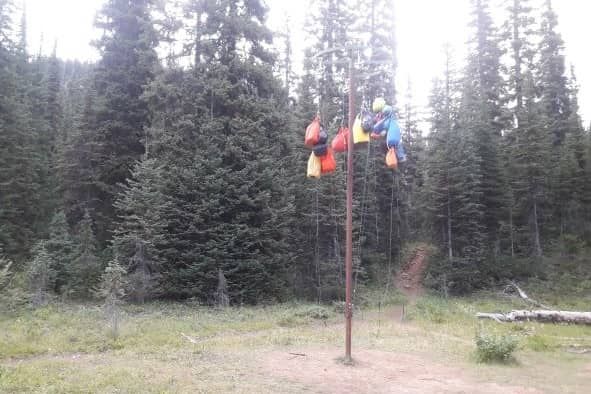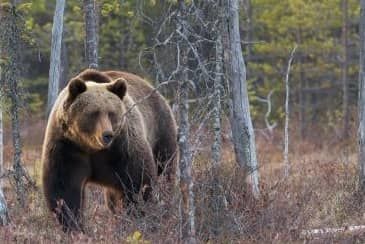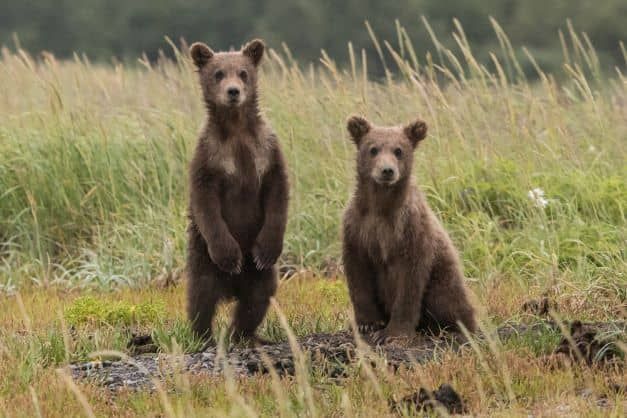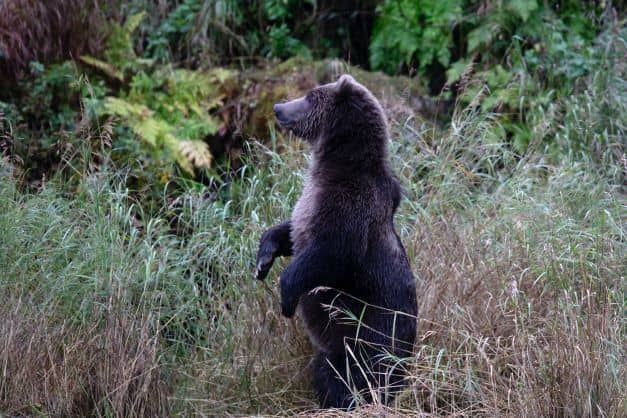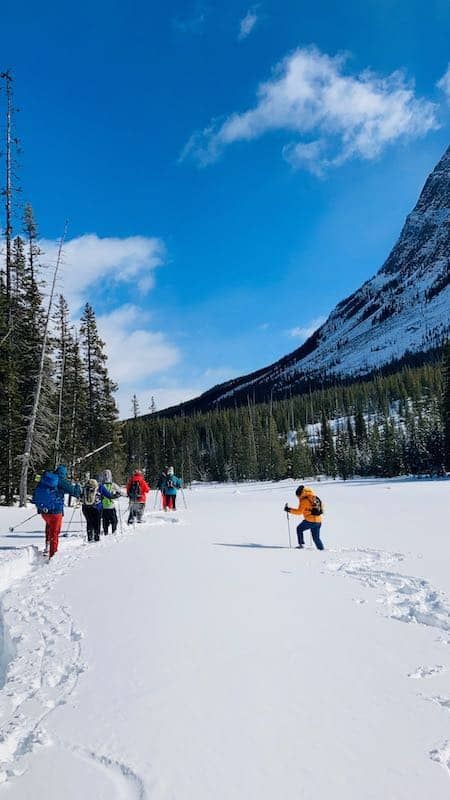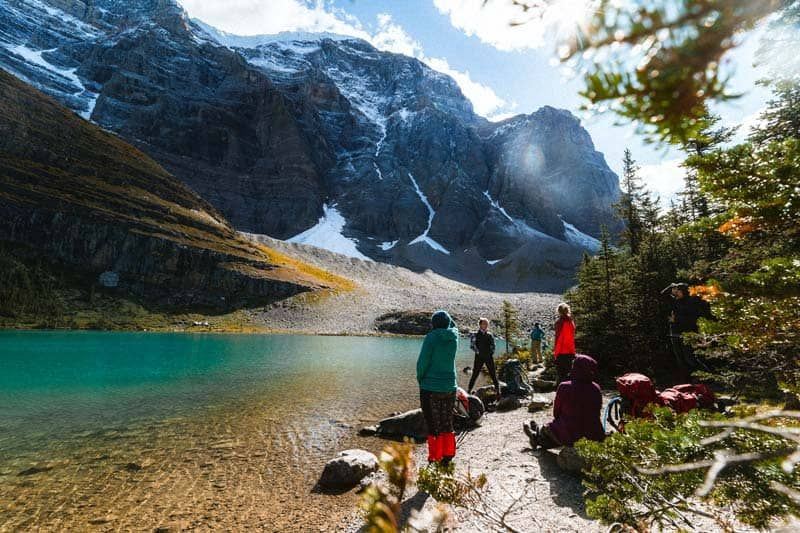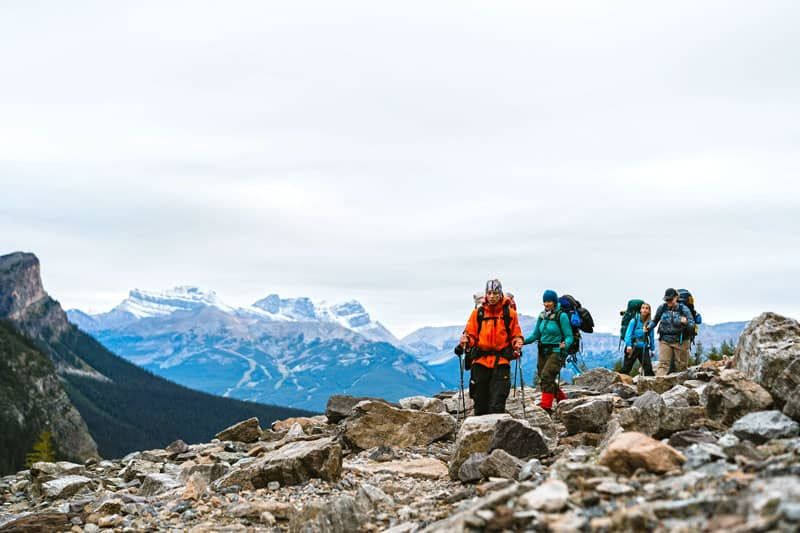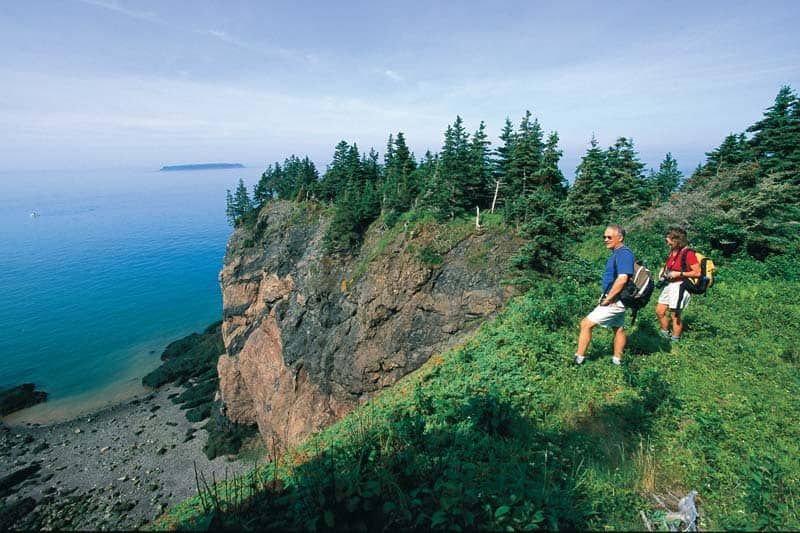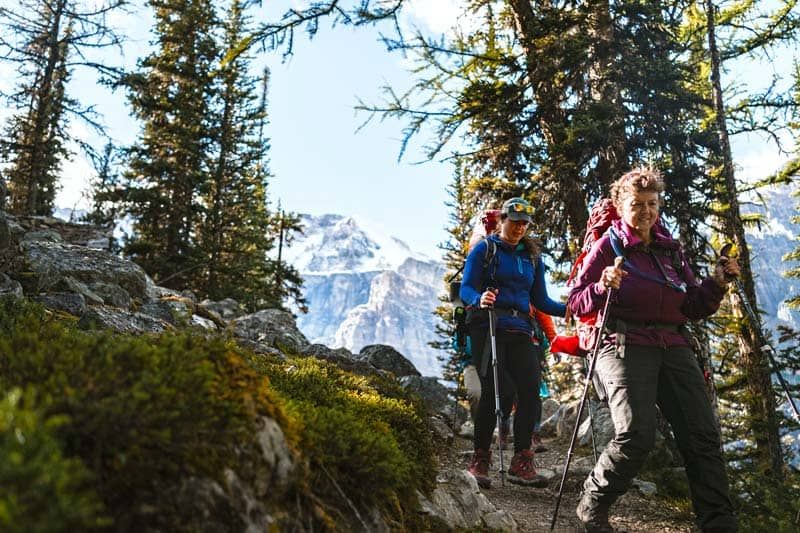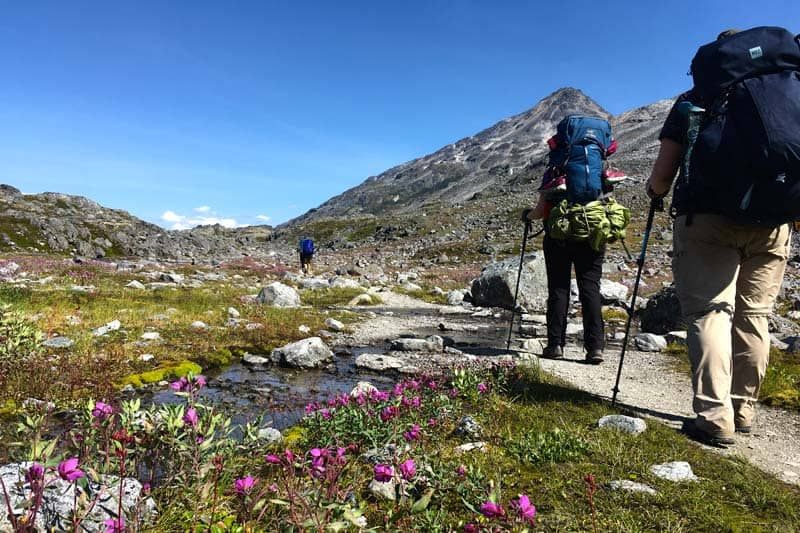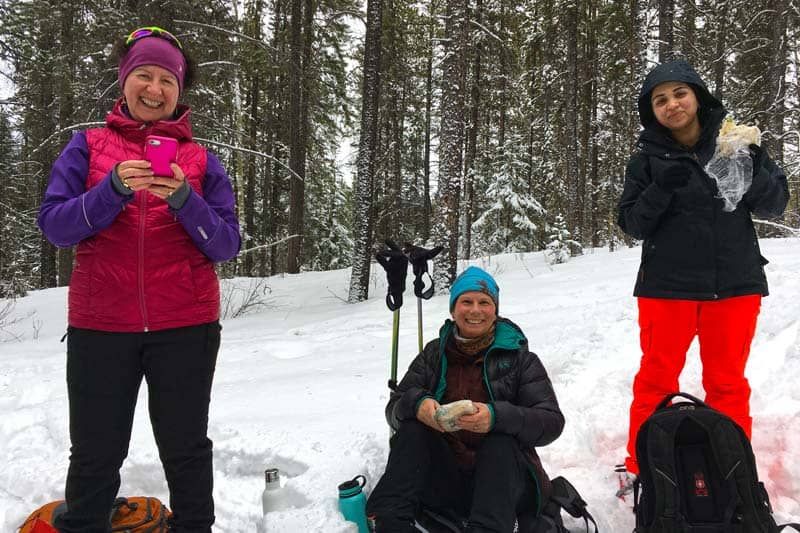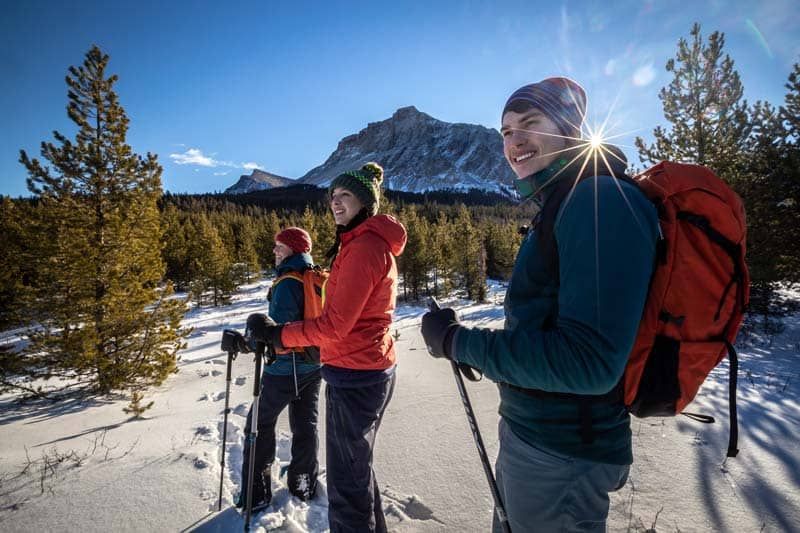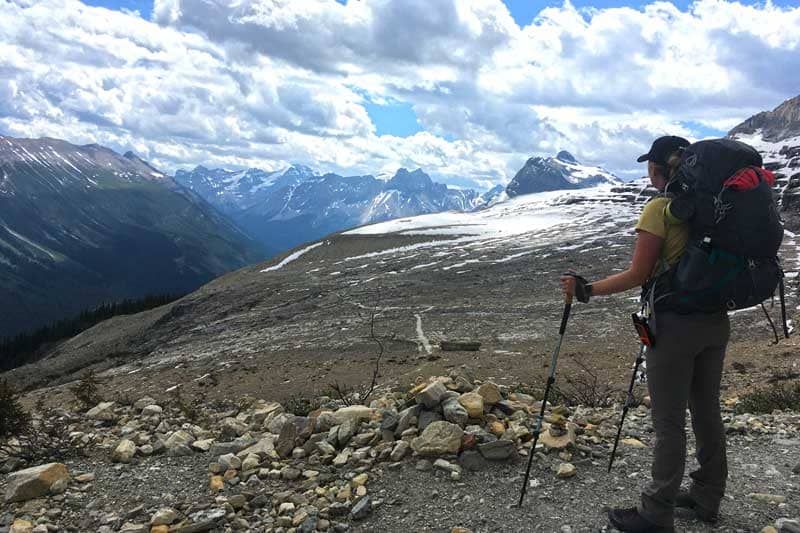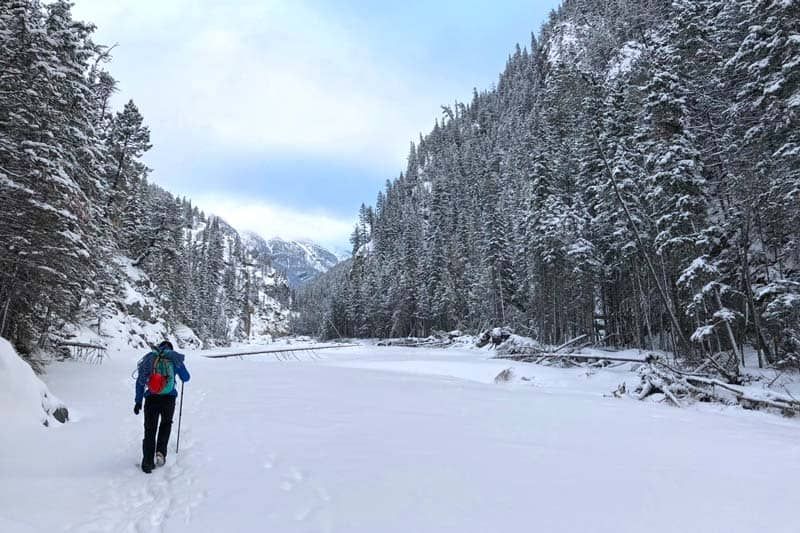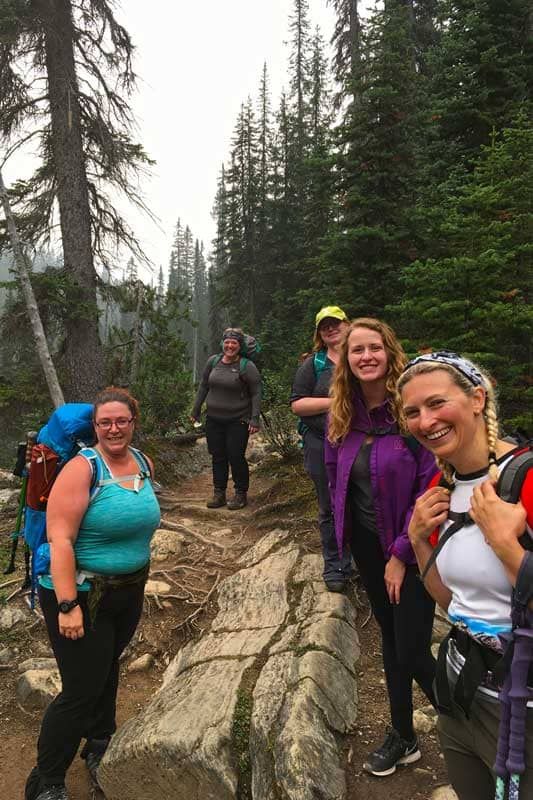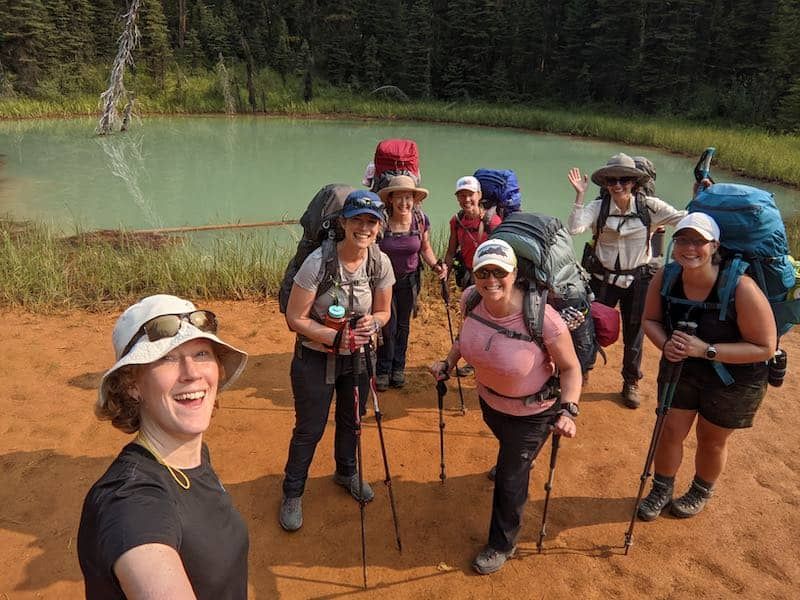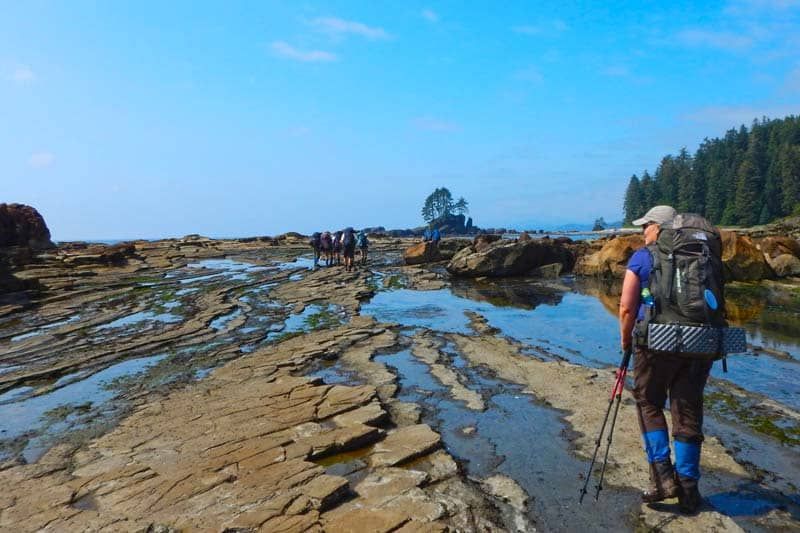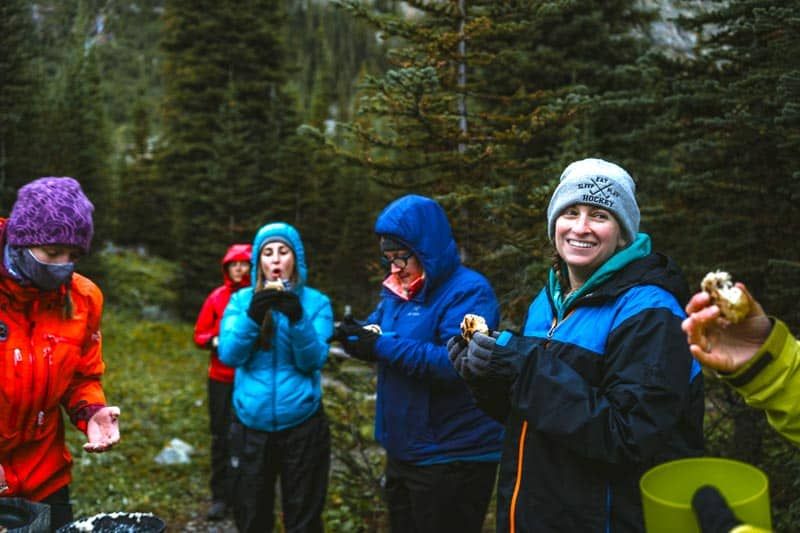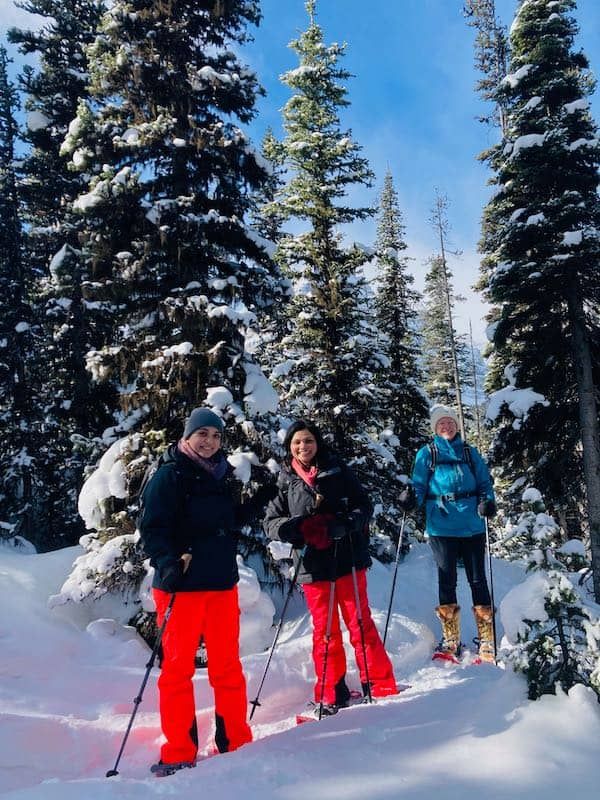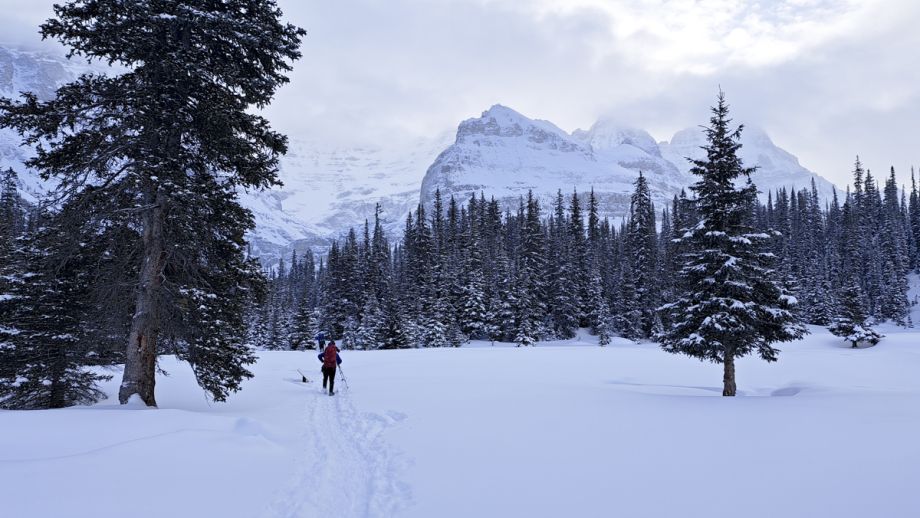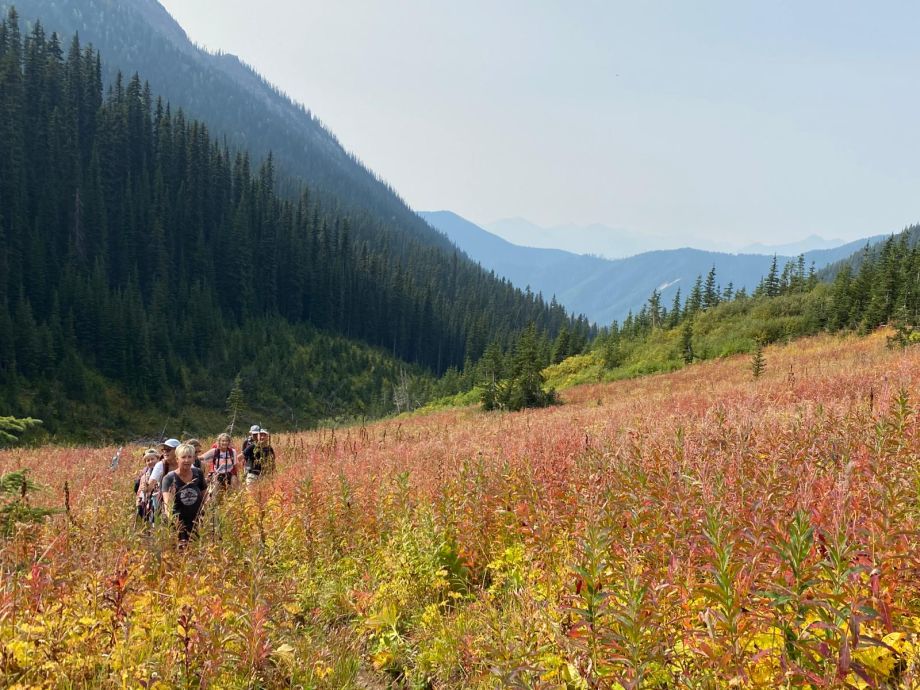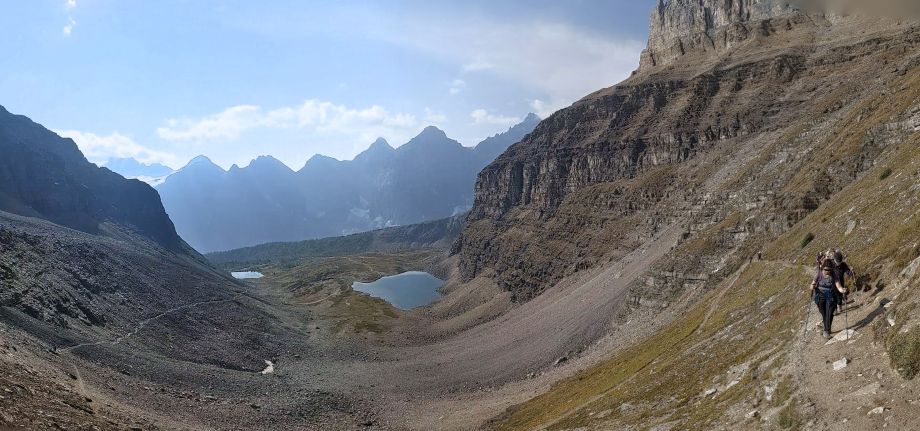Bears - How to Manage When Backpacking or Hiking
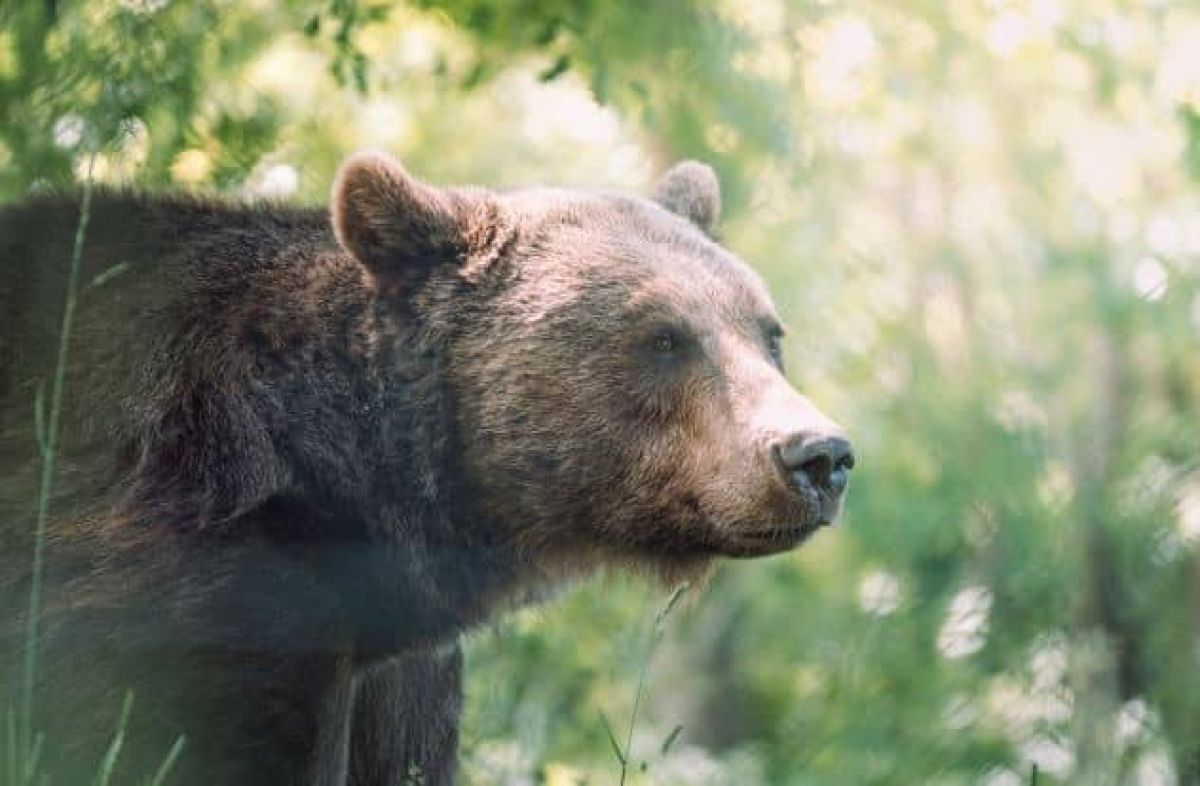
When we understand bear behaviour, we can better predict how they will respond. They move from being scary creatures we should fear to beautiful creatures that we respect and co-exist with.
Bears don’t want anything to do with humans, especially groups, and will avoid us if given a chance. Unless people have been feeding them, they don’t think of us as a food source.
"Once a bear realizes you are not threatening they usually avoid you"
A bear’s focus is typically on finding and eating food. They need up to 20,000 calories per day (8-10 times what a person needs). A bear’s diet is 85 percent plants, with the rest being insects and mammals. They are most happy chowing down on berries and roots.
Bears will normally leave an area if they know we are approaching, but sometimes a food source, or their cubs, make them stick around to defend an area. Momma bears want their cubs to be safe. They take the concept of “stranger danger” to the next level, and will act aggressively to anyone they think is too close. If you were eating your favourite meal, or you had just tucked your child into bed, would you be happy to have to pack up and leave? Probably not.
On The Trail
Our goal when moving through the forest is to let any bears around know we are coming, and that we are humans. When a bear knows a person is approaching, it has time to leave or prepare.
Human voices are the best way to let bears know you are coming. Bear bells and music speakers are not effective. Just think how close someone with a bear bell has to get to you before you hear it. Travel in groups; Groups of 4 or more people are highly unlikely to encounter a bear.
Be on the lookout for signs of bear activity like digging in the dirt or bear poop. Also be aware when you are passing common bear food like ripe berry patches or cow parsnip. When you see these signs of potential bears, keep close together and call out louder and more often.
Not sure when to call out? Wherever you could sneak up on your hiking partner is where you should call out. Key spots are a bend in the trail or around running water sources where it is harder to see and hear.
Follow rules and regulations meant to protect you and the bears.
-
Trails may require groups of 4 or more to travel at certain times of year
-
Some areas may be closed to the public, especially when a mother bear is denning nearby
-
Some trails prohibit bicycles because they are much faster and quieter than hikers and increases the risk of a surprise encounter
We want to make our camps unappealing to bears, so they aren’t attracted to investigate. Check out this resource from our Women’s Backpacking Courses about how to set up a proper camp. If they do come to camp, we want our tents to be the last possible place they check out.
-
Store all food or other smellies (toiletries, bug spray, garbage, soap, food scraps, etc) in a bear-proof storage or in a bear hang.
-
Cook and eat food away from tent sites
-
Put away all smellies whenever we aren’t using them
-
Keep your bear spray handy when cooking, washing, or hanging out around camp. A pro tip is to wear the holster on your belt so it’s with you even when you set your pack down.
Established campsites in parks will have designated areas for cooking and food storage, use them! If you are in the wild, try to store smellies, cook, eat, and wash up at least 50m (further better) away from your tents.
When washing:
-
Wash dishes with a small amount of biodegradable soap
-
Strain your dishwater to catch any leftover food bits and pack them out. Pro-tip: cleaning your plate by eating everything makes this step sooooo much easier.
-
Scatter dishwater into the shrubs in the cooking area
Smelly Storage:
-
Food and smelly storage should be 50-100m away from tents
-
Bear hangs should be 4m off the ground, and 2m away from trees and branches
-
If bear hangs are impractical due to lack of suitable trees, use a bear vault (a bear proof hard sided container)
As much as you might want that midnight snack, it’s just not worth having food items in your tent. Bears like midnight snacks too!
When we keep a clean campsite, bears lose interest in our camps and stay away. If we leave food out for them to find, they will quickly learn that a human camp means an easy lunch. Food habituated bears are dangerous, and sadly often have to be killed.
When you do Encounter a Bear
-
Speak calmly and loudly to the bear
-
Have everyone in the group come together. Pick up any small children, and ensure dogs are held closely on a leash
-
Get your bear spray ready by taking it out of the holster, and removing the safety. Keep it pointed at the bear
-
Slowly, while continuing to speak calmly, back away from the bear.
-
Leave your phone in your pocket, you have important things to focus on here
The majority of the time, the bear will amble off at this point. Perfect, that’s what we are hoping for. Consider that a positive encounter! Keep speaking and give them lots of time to get as far away from you as is comfortable for both of you.
Sometimes the bear will stay put, and either ignores you or is keeping an eye on you. You may return the way you came if that’s practical, or make a wide detour (at least 100m, preferably more) around the bear if you can’t turn back.
If the bear feels threatened or is protecting cubs or a food source, they may stand up on hind legs, huff and puff, or bluff charge. As long as the bear is 5m or further away, just keep talking and backing up slowly. If you see cubs, avoid getting between them and their mom. If the bear comes within 5m and doesn’t seem to be stopping, spray a few puffs of bear spray at their nose. Keep backing away from the bear. More than 95 percent of people who used bear spray in a close encounter are not hurt.
In the very rare case the bear continues to approach and makes contact with you, the reason they are attacking matters more than what kind of bear it is. It will be one of two reasons:
-
Defensive:
Prior to attacking the bear was making noise, stomping, and bluff charging. It is scared of you and thinks you are a threat. Use your bear spray. If you are knocked down, leave your backpack on, cover your head/neck, and lay on your stomach. Once the bear no longer feels threatened, it will often leave.
-
Predatory:The bear is being quiet, trying to sneak up on you. Sometimes a defensive attack can change into a predatory one if it lasts more than 2 minutes. It wants you for lunch now. Fight back with all you have.
After Any Encounter
-
In KananaskisCall Dispatch at 403-591-7755, and follow the prompts to report your wildlife sighting.
-
In Banff/Yoho/Kootenay:Call Banff Dispatch at 403-762-1470
More Bear Resources
You can sign up to WildSmart to receive weekly bear updates. The email provides an activity summary of where bears have been in the Bow Valley and Banff areas, and what their habits have been.
Other Posts of Interest
Fresh off the Press
Most Popular Stories
Tags
Spread the Love - Share this article on your socials...
